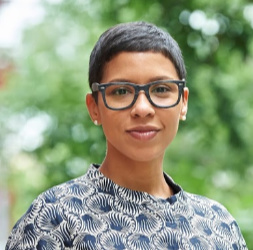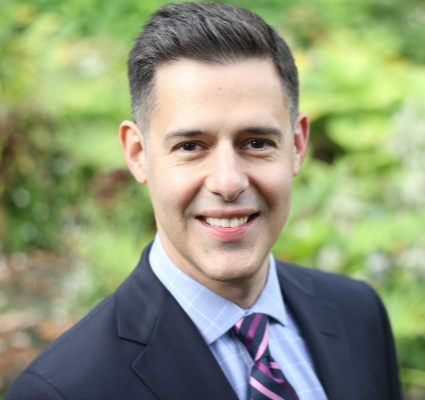
The Arthur L. Johnson Urban Perspectives Lecture Series brings Melissa Murray, renowned professor of law and co-director of the Birnbaum Women's Leadership Network at New York University, to explore the political, legal, economic and social factors that influence reproduction and parenting, touching on race, ethnicity, socioeconomics and sexual orientation.
Moderated by John Corvino, dean of the Irvin D. Reid Honors College, the Oct. 10 presentation will be held from 4 to 6 p.m. in Wayne State’s Community Arts Auditorium and will include a question-and-answer session followed by a reception. Presented by the Wayne State Alumni Association, in partnership with the Irvin D. Reid Honors College and Greater Detroit Association Phi Beta Kappa, this event is free and open to the public

Murray is a leading expert in family law, constitutional law, and reproductive rights and justice, and her award-winning research has appeared in numerous legal journals. She has translated her scholarly writing for wider audiences in publications such as The New York Times, the Washington Post and Newsweek, among others.
Corvino spoke with Murray ahead of the event to offer a snippet of what attendees can expect.
What can people look forward to in your talk on Thursday?
A challenging discussion about the degree to which reproductive rights — once an issue that enjoyed bipartisan support — has become politically polarizing, shaping our public discourse and the composition of some of our most important institutions.
Some would say it's a challenging time for reproductive rights in America. Would you agree?
Yes.
How so? Do you think reproductive rights will be a significant issue in next year's presidential election?
It depends. This term, the Supreme Court will take up a high-profile abortion case, June Services v. Gee. The case is a challenge to a Louisiana law that requires abortion providers to have admitting privileges at local hospitals. The problem, of course, is that the challenged law is identical to the Texas admitting privileges law that the court struck down in 2016’s Whole Women’s Health v. Hellerstedt. The court could decide this narrowly on the facts, and trim back the holding of Whole Women’s Health, or it could be bolder and conclude that Roe v. Wade — the underpinning for the right to abortion — was improperly decided. To be clear, either path is hugely consequential. A decision to overrule Roe v. Wade would be a watershed moment. But the narrower option is also dire. As it stands, the right that Roe v. Wade articulated is basically a nullity for women in many jurisdictions, as it is incredibly difficult to obtain an abortion in many states. A narrow decision trimming back Whole Women’s Health would only exacerbate this situation, inviting states to enact even more restrictive abortion regulations. The upside for the court is that the narrower decision is likely to be less observed and controversial. It won’t prompt teeth-gnashing and protests from liberals, but it probably should as its impact is as profound as eliminating Roe entirely.
Tell us about your work with the Birnbaum Women's Leadership Network.
It’s really exciting work. Basically, we are focused on ensuring that New York University Law is a place where women can thrive as they begin their careers as lawyers, and that the profession into which they graduate cultivates the conditions under which they can be successful as lawyers. So, in the law school, we have launched a fellowship program and other initiatives designed to cultivate leadership skills and potential among all students, but especially women. And in the profession, we are designing programming to help law firms and other professional contexts identify and remedy conditions that impede women’s retention and advancement.
Have you been to Wayne State before? To Detroit?
After college, I worked as a management consultant, and one of my projects was in Battle Creek — Cereal City, USA! But I never went beyond Kalamazoo. Then, I flew into Detroit 14 years ago to interview for a job at the University of Michigan’s law school. It didn’t work out, but it whetted my appetite to learn more about the Wolverine State and the Motor City! This is all to say that I am very grateful for this kind invitation to visit, and I look forward to meeting you all!
